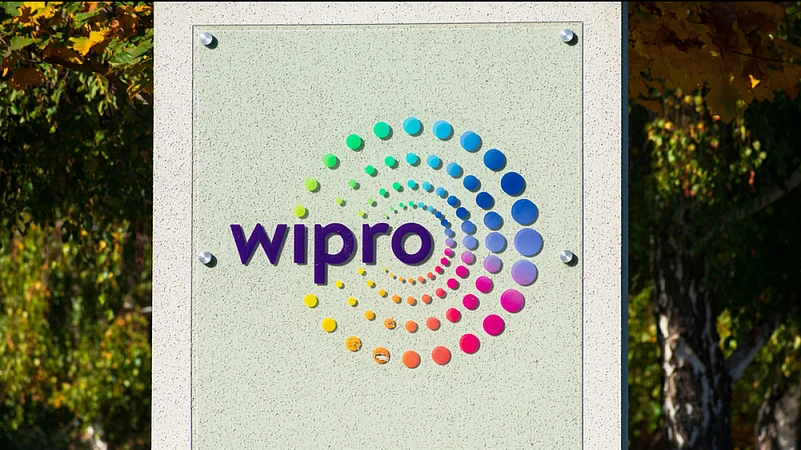Wipro shares witnessed a sharp uptrend on domestic bourses in early trading on October 11, after the IT services firm finalized its investment in the equity share capital of FPEL Ujwal, a renewable energy company, with a total investment of Rs 6.3 crore.
Established on February 4, 2022, FPEL is a specialized entity by Fourth Partner Energy to develop an exclusive solar power project in Karnataka.
Following the development, the IT giant was among the top gainers. At 11:30 am, Wipro’s share surged to more than 3 percent or 14 points to trade at Rs 421.
Last month, Wipro entered into a formal agreement to secure a 9.5 per cent stake in FPEL Ujwal. It focuses on the development, construction, and management of a solar power asset portfolio. The agreement underscores Wipro's inclination towards the adoption of renewable energy within its offices located in Karnataka. Commenting on the development, Wipro said, "This project is expected to help us move closer to our goal of becoming Net Zero by 2040 and 100 per cent renewable energy for purchased electricity by 2030."
Shares of Wipro gained more than 7 per cent on a year-to-date (YTD) basis, while NSE Nifty50 surged to almost 9 per cent.
Earlier this year, Wipro delayed its salary hike announcement by a quarter, citing macroeconomic challenges and margin pressures. Similar delays have been witnessed in various IT firms, often linked to an industry slowdown, particularly in the banking and financial services sector.
In July, Wipro took measures to enhance profitability, including focusing on higher-margin contracts and reducing its client base. These steps followed a 2.8 per cent revenue decline in the June quarter, as reported by Business Standard. The company had also adjusted its pay packages for new recruits earlier this year, reducing them by nearly 50 per cent compared to initial offers.




























